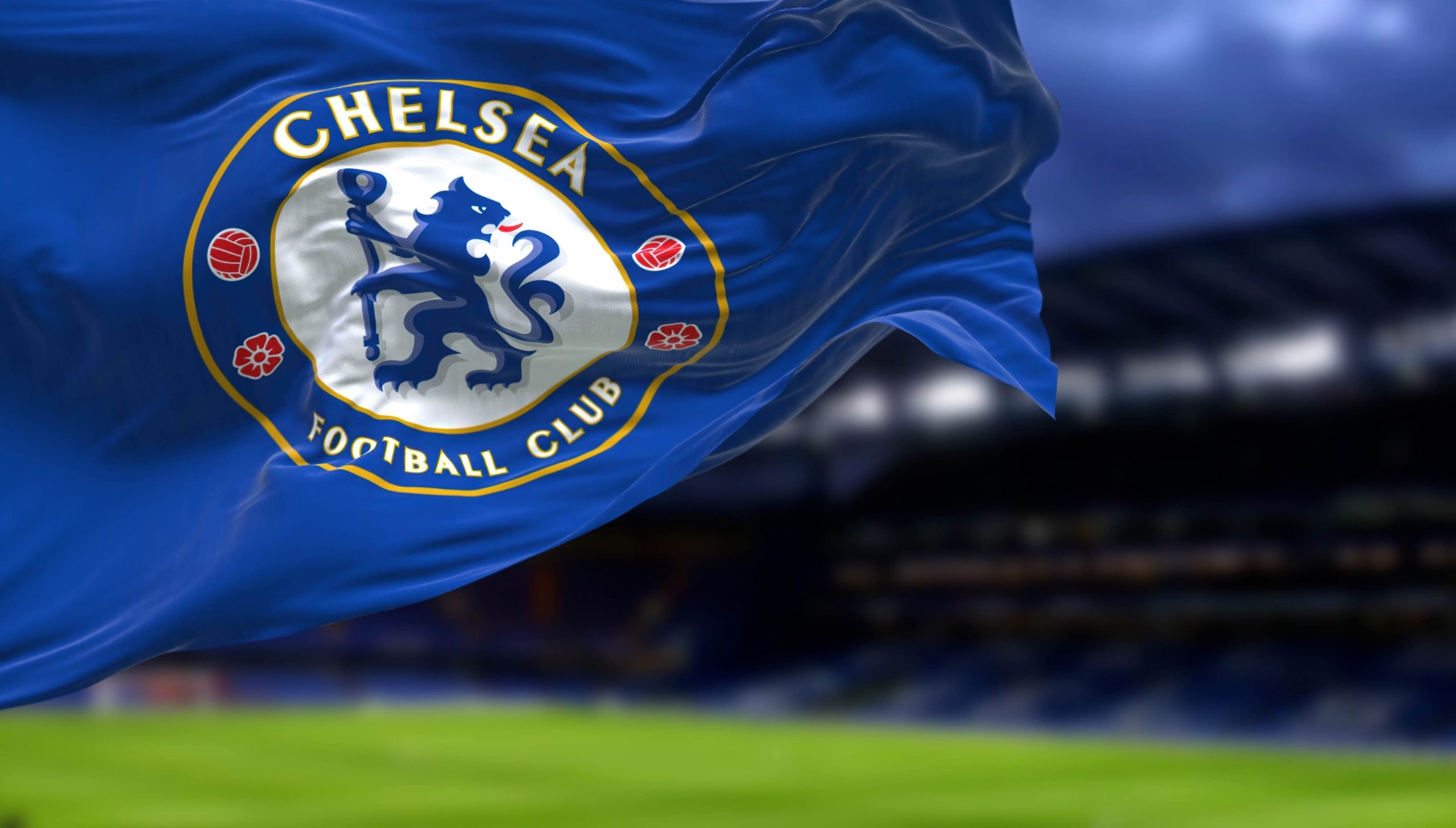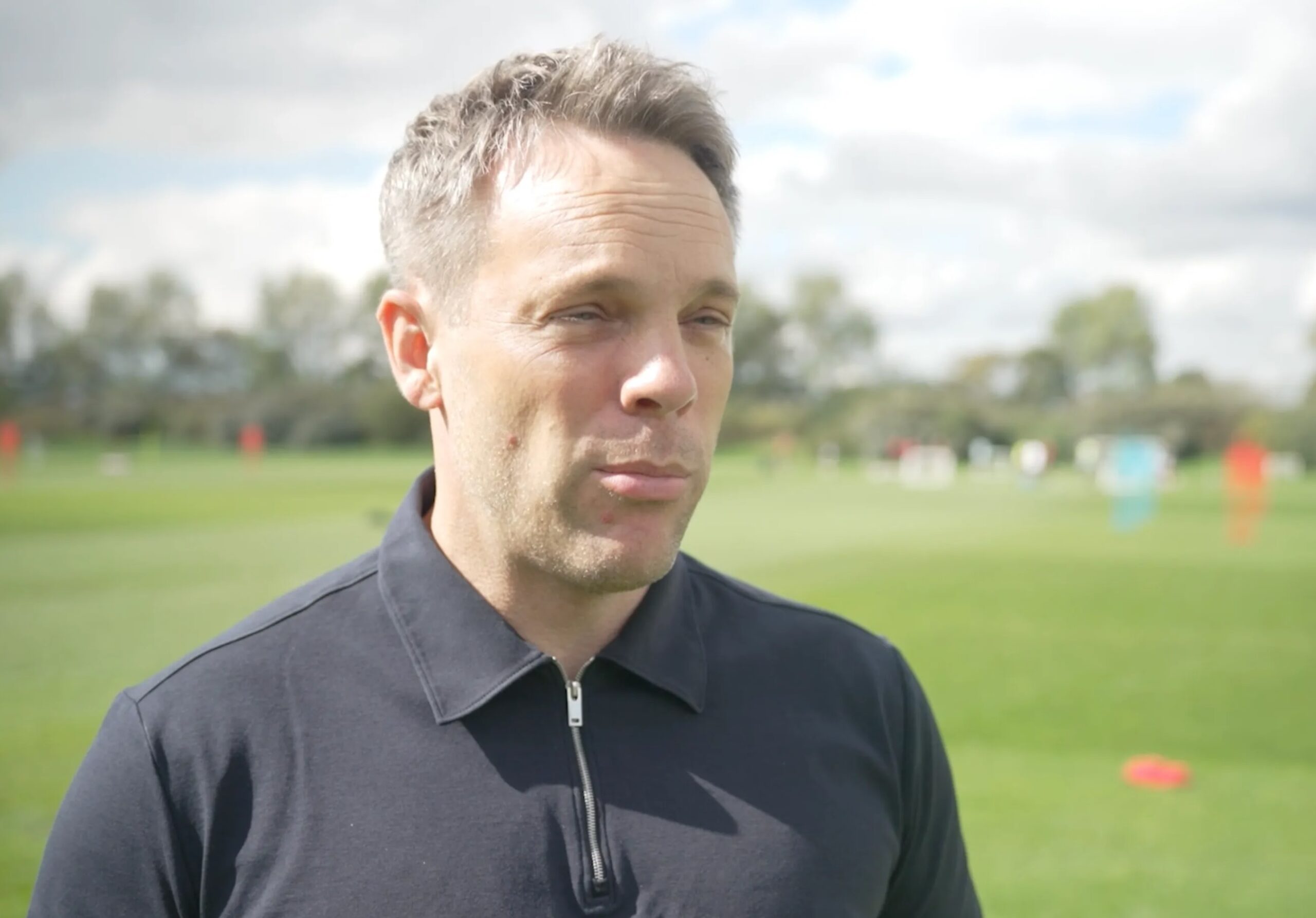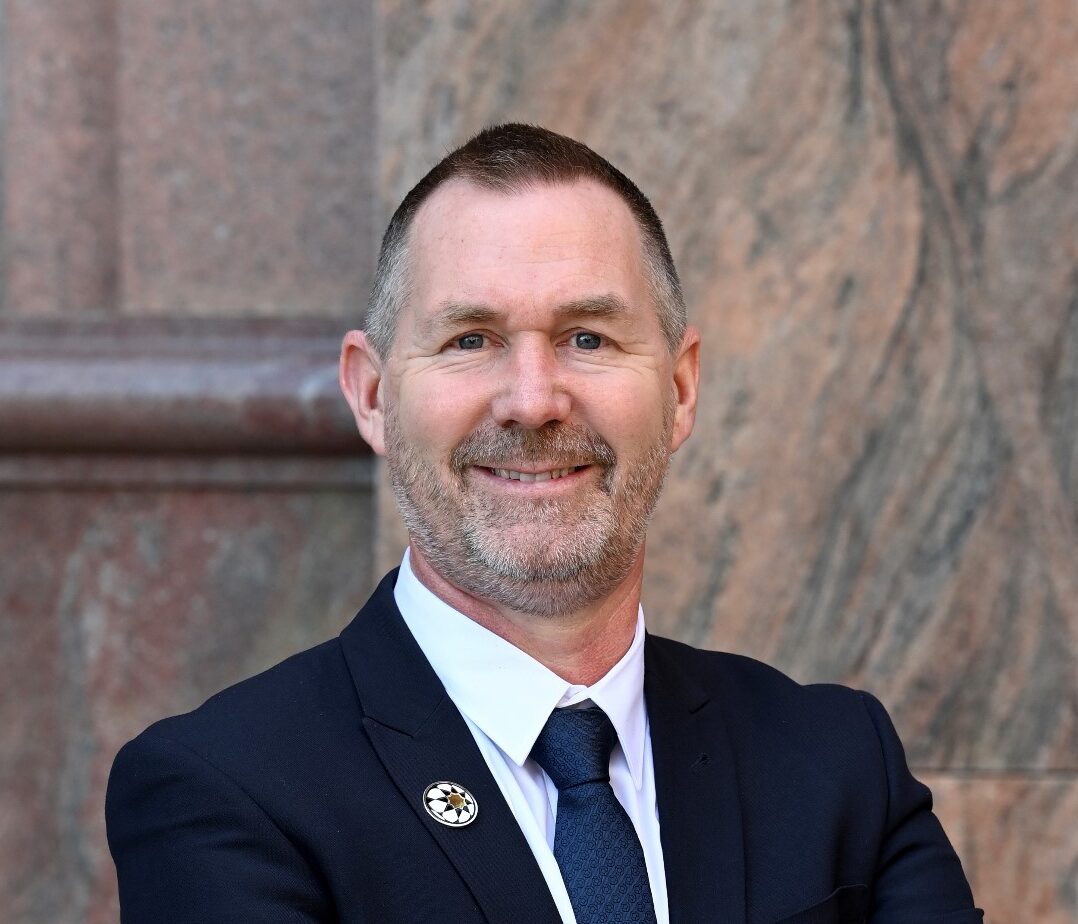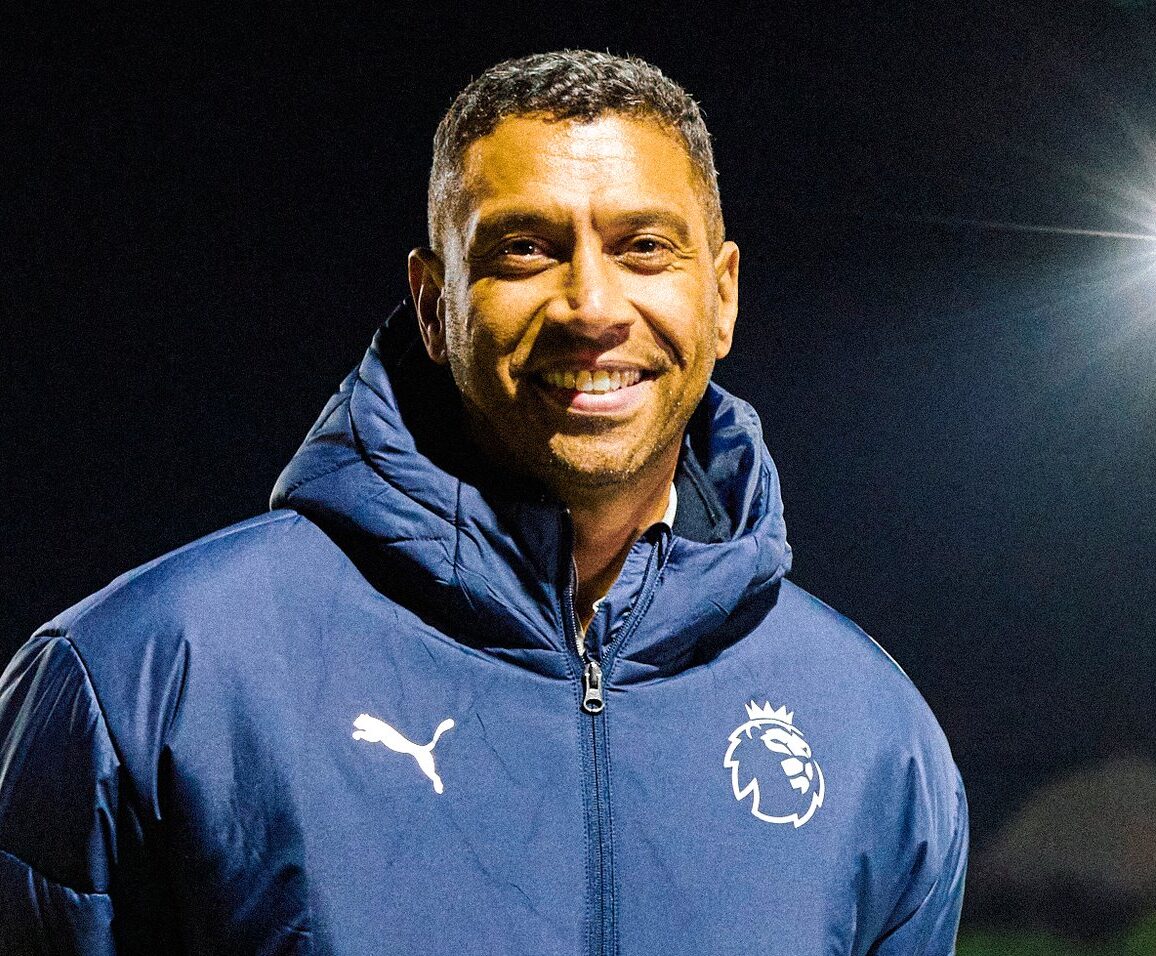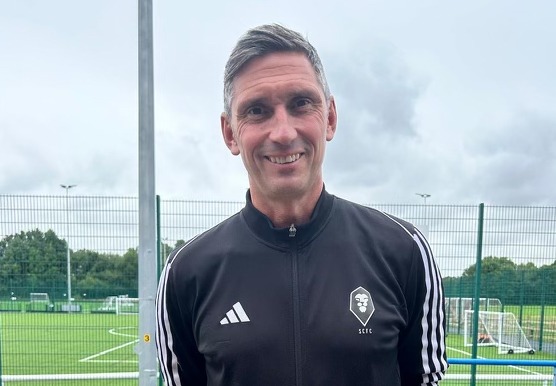
Chris Casper: Lesser light of Class of ’92 now driving Salford forward
Written by
Thomas Hill
July 23, 2024
You might know Salford City best because of their ownership, with Gary Neville, Phil Neville, David Beckham, Paul Scholes, Ryan Giggs and Nicky Butt each holding a 10% stake in the League Two club.
Perhaps it’s another graduate of Manchester United’s famous Class of ’92 who has had the greatest influence inside the building though.
Chris Casper played seven games for the Red Devils before transferring to Reading in 1998 and moving into coaching and management. The 49-year-old has been Salford’s Sporting Director and then Director of Football Development since January 2017.
His remit has been to oversee “the whole footballing aspect of the club, from performance, services, sports science, the football philosophy, recruitment of players and staff, the Academy, the women’s team – basically trying to deliver the owners’ vision and football philosophy.”
A career-ending injury on Boxing Day 1999 forced the defender’s retirement from playing at the age of just 24 and he went into coaching, at both youth and senior level, with Bury, Bradford and Grimsby, before becoming Club Support Manager for the Premier League.
Then he got the call from his old team-mates at Salford.
“I’d never really considered becoming a Sporting Director after I finished my playing career,” Casper tells TGG. “It wasn’t really a role that was prevalent when I was a player or manager, although my last six months managing at Bury, we did actually have a Technical Director in Keith Alexander.
“I wouldn’t say his role was particularly clear, but he was a good man and he helped me. It was more of a European thing at the time.”
When he was appointed, Salford were in the National League North. Two promotions later, they’re in League Two.
“We’re a unique club in the fact that our ownership have the best part of 6,000 elite games under their belt."
Chris Casper
“Especially in the first three or four years, the progress was astronomical from where we were,” Casper admits. “The club has continued to build in all areas and ready to challenge again for success.”
Casper, who grew up in Burnley, says Salford have a couple of major selling points.
“We’re a club in a big city,” he says. “We want to give the people of Salford something to be proud of, something that they can relate to, something that the boys and girls, men and women, can aspire to be part of.”
The women’s team, the Salford City Lionesses, were formed in May 2018 and have just appointed a new manager in 26-year-old Connor Wild. The Academy, which we will talk about in more depth later on, has been back at Category Three for the last year and there are ambitions to grow it further.
Then, of course, there’s the fact that Salford have one of the most famous ownership group in the country. Singaporean businessman Peter Lim holds 40% of the club, as well as being owner of La Liga side Valencia, while the six graduates of the Class of 92 hold the remaining 60%.
“We’re a unique club in the fact that our ownership have the best part of 6,000 elite games under their belt,” Casper says. “No other club in the world have got owners like that.”
So what’s it like working for them?
“I think that’s what the main owner Peter Lim wanted – to utilise all of of their experience within the club. They’re here most days and it’s good that the staff see them on a regular basis.
“A lot of club ownership systems get criticised, but ours have so much experience in the game. That’s what people see with our club – it’s a real footballing club and that’s probably why it’s so attractive.”
The club were pioneers in appointing a Sporting Director – especially at the level they were at.
“At National League North level, having a Sporting Director wasn’t very common,” Casper admits. “But for Salford, that came from a vision of the owners. In particular Gary had worked with Technical Directors with England, with Dan Ashworth, and out in Valencia as well. He saw the real benefit of the role.”
Although the role has become much more prevalent in recent years, throughout the pyramid, Casper says it is still “very much undefined in a lot of ways, it’s misunderstood.
“It’s seen as a Head of Recruitment role in a lot of places, which is not the case,” he says. “It’s not just about recruitment, dealing with agents, signing players and things like that, it’s making sure the whole club is functioning as it should be. One of the most important parts of the role is to identify the staff who can deliver what you want to deliver.
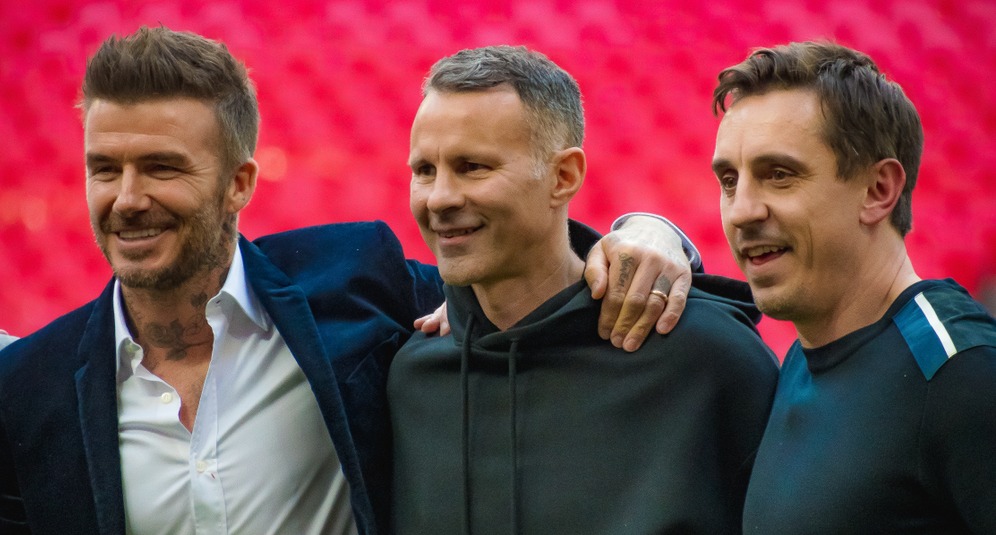
Salford City co-owners Ryan Giggs (centre) and Gary Neville (right) with David Beckham (left)
“Attracting and seeing the best sport scientists, manager, coaches, Head of Academy, whatever that is. [The staff] see the culture that we’ve developed. My role is overseeing the whole of the club from a football perspective.”
Being a Sporting Director at League Two level can be a lot more hands-on than in the Premier League.
“A couple of years ago, Warren Joyce moved with the first team as an interim (manager), so I took the B team for six months as I’ve got a coaching background, and I really enjoyed doing it,” Casper remembers.
“When I can get out on the grass and help with the coaching, I do that, but it’s led by our Head of Coaching, Jimmy Hunter. I’m there to help and act as an extra body really, if we’re doing individual work with players and position specific stuff, with defenders with my background. It’s a bit fluid like that.”
One of the duties sometimes assigned to a Sporting Director is game model or philosophy, but Casper believes this can be overplayed.
“I wouldn’t say that we have a very specific style of play,” he says. “When I was at United, there was never any playing philosophy, it was never mentioned. It was ‘play what you see’ and find a way to beat your opponent.
“You win your duel, you win your battles, you win games. You might have to be more pragmatic at times, you might have to be more defensive, but how you win is ultimately what the games all about.
“We do want to win in a certain style though. When you’re at United, you always had two wingers, two box-to-box midfielders, two full-backs that could get forward and create chances.
“We have to entertain the fans in the right way, we can’t just grind results out, we’ve got that responsibility to them. They pay good money, so we have to entertain them in the right way, but at the end of the day we have to win games of football.
“Fans enjoy seeing intense football, players that tackle and run and win and enjoy winning. That’s ultimately what the game’s about. You’ve got to try and look at the managers that are ultimately going to make you successful.”
Salford have sacked six managers in the eight years of the new ownership. The man in the hotseat now is Karl Robinson, who was appointed in January.
“That happens – people make decisions and you’ve got to stick by your decisions ultimately,” Casper says. “That’s one thing Sir Alex Ferguson was famous for – making decisions. If you don’t, you’re not a leader. You can’t let things fester.
“Did Sir Alex get every decision right? No, but he was clear in what he wanted to do and the owners here are absolutely the same.”
Academy Ambitions
Casper says one of the big priorities for the club is their Academy.
Last season the Academy gained Category three status. That licence was a provisionary one and they are now hopeful of getting the full three-year licence, with an audit having taken place earlier this year.
“The club was born out of a concept that Ryan and Gary developed,” Casper explains. “They wanted to have an Academy in the Salford area, the local area, but they needed to have a pathway into the first team.”
“The long-term future of the club is in developing our own players. In Category Four Academies you’re at the mercy of bringing together lads who’ve been released from other clubs who then have to gel.
“Now we have lads from U9s to U16s and lads who have been with us for seven or eight months and we know what they are and are able to develop them in the way that we want to. That’s the idea moving forwards.
“We have had some success (with homegrown players), with Kelly N’Mai and Liam Humbles making league debuts. All the way through from the Under-9s, we need to try to develop players to the first team. The B Team also plays a big part in players’ development.
“Most clubs at our level don’t have a B Team or U21s but we give lads who have come through the U18s, who we deem may be capable of playing in our First Team, time to develop. We also pick lads up from other clubs who weren’t given time and currently we have had 27 B Team players make First Team debuts.
“Bigger clubs might then identify those players, buy them and it makes money for the club. It works really well for the long-term future of the club. The first years now have been in the building seven or eight months, we know what they’re about, we know what qualities they’ve got, or what they need to work on. There’re so many benefits to being Category Three.
“The vision is to move forward and continue to grow the Academy. In the short to medium-term, we’re happy where we are. Embed the programmes, get everybody comfortable with where we are and, as usual at this club, we go again and move forward. That’s the plan.”
Moving from Category Four, where you only have teams in the Professional Development Phase, to Category Three, where you run all the age groups from U9s, is not an inconsiderable task.
“We brought in roughly 25 members of staff, 10 of them full time,” Casper explains. “Evening training for the nines to 16s had to be sorted out. We had to find about 100 U9 to U16s players and sign them.
“Our Head of Operations Kath Matthews did a brilliant job with that. Equipment, kit – there was so much to organise, plan and deliver. This time last year we didn’t have any of that.
“To accomplish that and be where we are now, I’m pretty proud of what we’ve all achieved. All of the staff have been unbelievable, the club have really backed us and we’re very competitive in Category Three.”
"We talk a lot about standards and values and behaviours here, which cost nothing.”
Chris Casper
As part of this spirit of always moving forwards, Salford have also been improving their training facilities.
I’m speaking to Casper at Partington Sports Village, which the club’s Academy share with Broadoak School.
“We’re fortunate that we’ve got a really good site here,” Casper says. “We’ve been here for six years. We have two full-size brand new astroturf pitches, three grass pitches, the most up-to-date 5G surface. It’s secluded, it’s private, and everything’s worked great for the last six years, and we’ve just signed another year to be here.”
The gym is also in the process of being rebuilt.
There’s another nice link back with the past with Salford’s first team now training at Littleton Road, where United’s Academy used to have a base under Ferguson.. It’s five minutes from the Cliff, where United’s first team trained, and two minutes from Salford’s ground.
Throughout our interview it’s clear that the values of United and Ferguson permeate throughout Salford City, from the youngest Academy ages up.
“We got brought up on those principles through Sir Alex about the way you behave, the way that you conduct yourself,” he says. “If you go away, you clean the dressing rooms and you’re respectful of the opposition and community around you.
“Good manners cost nothing. Say hello to people, treat people the right way. We’re trying to instil into the Academy the values we’ve taken from our own experiences.
“In my background with the Premier League, I saw a lot of Category One stuff. I saw a lot of elite work, but also stuff that you can implement here. We talk a lot about standards and values and behaviours here, which cost nothing.”
Follow Us
For latest updates, follow us on X at @ground_guru

